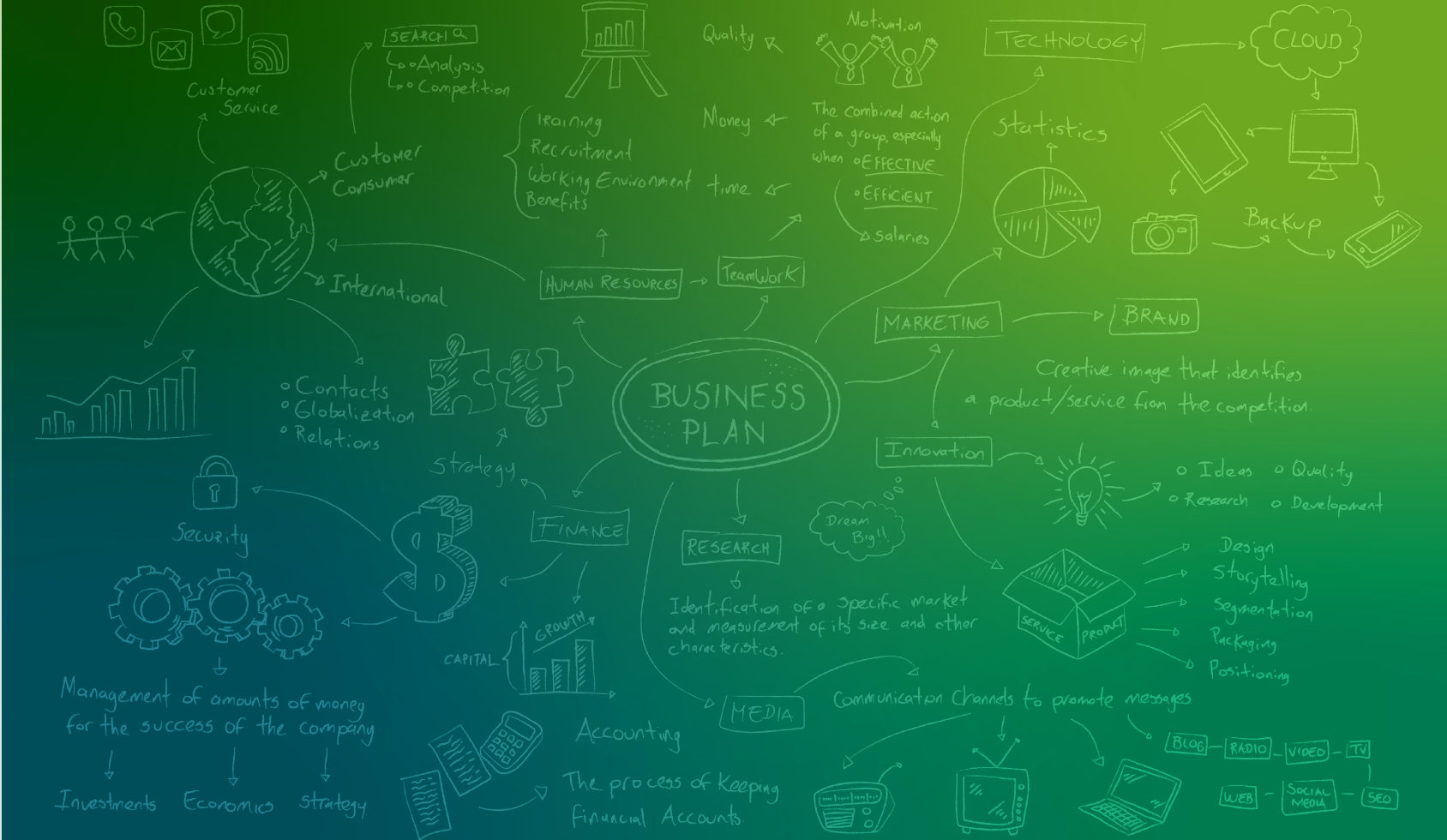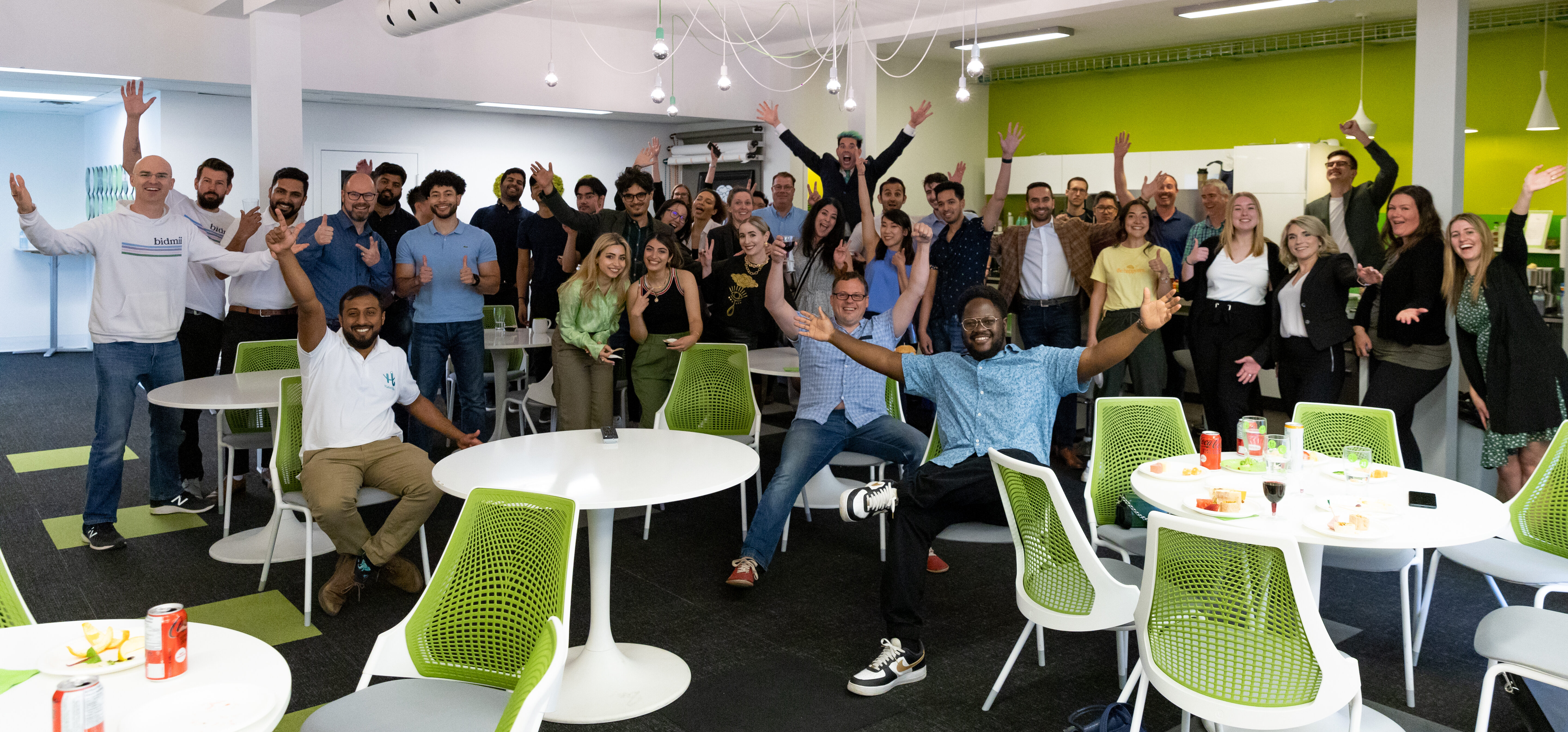In the ever-evolving world of entrepreneurship, resilience is a cornerstone for success. It’s the invisible armour that entrepreneurs wear as they navigate the unpredictable journey of building and scaling a business, and it’s why the Treefrog Accelerator Program works hard to help our founders build it. This blog post delves into the essence of resilience in entrepreneurship, offering insights and strategies to help you fortify your resilience and thrive as an entrepreneur.
But First… What Makes You an Entrepreneur?
Being an entrepreneur or a founder is about more than starting a business. It’s about the drive to create something new and valuable. It involves taking risks, adapting to new situations, and persisting through challenges. Entrepreneurs are characterized by their willingness to innovate and their determination to turn visions into reality.

5 Characteristics of a Successful Entrepreneur
Successful entrepreneurs often embody a unique blend of characteristics, each playing a pivotal role in their journey toward success. Let’s take a closer look at these five standout traits:
- Vision: At the heart of every successful entrepreneur is a clear, compelling vision. This isn’t just about setting goals; it’s about having a vivid picture of what success looks like. It’s the ability to foresee where you want your business to go and what impact you want to make. This vision acts as a guiding star, keeping entrepreneurs focused and motivated, even when the going gets tough.
- Adaptability: The business world is ever-changing, and adaptability is key. Successful entrepreneurs are those who can pivot and adjust to new market trends, customer needs, and technological advancements. This agility allows them to stay ahead of the curve, turning potential challenges into opportunities for growth and innovation.
- Perseverance: The path of entrepreneurship is often littered with obstacles and setbacks. Perseverance is what keeps entrepreneurs going. It’s the grit and determination to keep pushing forward, even when faced with failures or disappointments. This relentless drive is what turns dreams into reality.
- Risk-taking Ability: Entrepreneurship is inherently risky, and having the courage to take calculated risks is essential. Successful entrepreneurs weigh the pros and cons, but they aren’t afraid to step out of their comfort zones. This willingness to take risks can lead to groundbreaking innovations and significant business growth.
- Emotional Intelligence: Often overlooked, emotional intelligence is a critical trait for entrepreneurs. It’s the ability to be aware of, control, and express one’s emotions, as well as handle interpersonal relationships judiciously and empathetically. This skill helps in managing teams, negotiating deals, and building lasting relationships with clients and partners.

Defining and Determining Success as an Entrepreneur
In addition to key personality traits, successful entrepreneurs are also influenced by how they define and determine their success. For example, success as an entrepreneur often means setting personal and professional goals and achieving them. It’s about making a positive impact in your chosen field and continually growing and evolving. For the most successful entrepreneurs, success isn’t static; it’s a journey of constant learning and adaptation.
But of course, success in entrepreneurship is subjective and varies widely. For some, it’s about financial profitability, while for others, it’s about making a significant market impact. Personal fulfillment and innovation are also common benchmarks. Ultimately, success is about achieving what matters most to you.
So, What Is Resilience in Entrepreneurship?
Resilience in entrepreneurship is the ability to withstand, adapt to, and recover from setbacks, challenges, and failures. It’s about bouncing back stronger than before and forging ahead. As Steve Jobs once said, “I’m convinced that about half of what separates successful entrepreneurs from the non-successful ones is pure perseverance.” This resilience is not just crucial; it’s indispensable for long-term success in the dynamic and challenging business landscape.

Use the 7 C’s to Build Resilience
Building resilience is crucial in both your professional and personal life. Understanding and integrating the 7 C’s can be a game-changer:
1. Control: It’s vital to discern between what’s in your control and what isn’t. Successful people focus their energy on influencing things they can control while adapting to those they cannot. This mindset helps in reducing stress and staying proactive in the face of challenges.
2. Competence: Building and honing your skills is a continuous process. The more competent you feel in your abilities, the more resilient you become. This doesn’t just apply to technical skills but also to interpersonal and management skills.
3. Coping: Effective coping strategies are essential for resilience. This could mean practicing mindfulness to stay grounded, seeking advice from mentors, or developing problem-solving skills. Coping mechanisms help you navigate through tough times more effectively.
4. Confidence: Confidence is about trusting in your ability to succeed. It’s not about guaranteeing success in every endeavour but having faith in your capacity to handle various outcomes. This self-belief is crucial for taking on new challenges and bouncing back from setbacks.
5. Connection: Building strong, supportive relationships is invaluable. A network of peers, mentors, and friends can provide advice, feedback, and a sense of belonging. These connections often become a source of strength and guidance.
6. Character: Maintaining a strong character and staying true to your values and beliefs is essential. It helps in navigating ethical dilemmas, making tough decisions, and staying true to your vision and mission.
7. Contribution: Making a positive impact in your community or industry can be incredibly fulfilling. Contributing to something larger than yourself provides a sense of purpose and motivation, driving you to continue even in the face of adversity.
It’s clear that the journey of an entrepreneur is truly multifaceted, requiring a blend of vision, adaptability, perseverance, risk-taking, and emotional intelligence. Coupled with the 7 C’s of resilience, these traits form the foundation of a successful entrepreneurial mindset. Remember, each founder’s journey is unique, and these qualities can be developed and nurtured over time.
The Role of Resilience in Overcoming Challenges
Entrepreneurs often face a whole host of challenges: failure, uncertainty, financial stress, and burnout, to name a few. Resilience acts as a buffer, enabling entrepreneurs to navigate these challenges effectively. Take the story of Arianna Huffington, who, after facing rejection from 36 publishers, went on to create the hugely successful Huffington Post. Her resilience transformed a failure into a stepping stone for success, and there’s no doubt you can do the same.
3 Strategies to Build Resilience
1. Develop a Growth Mindset
The concept of a growth mindset, brought into the limelight by psychologist Carol Dweck, is more than just a buzzword in the entrepreneurial world; it’s a foundational element in building resilience. This mindset revolves around the belief that your abilities and intelligence are not fixed traits but can be developed over time through dedication and hard work. It’s about viewing challenges not as insurmountable obstacles but as opportunities to grow and learn.
To cultivate a growth mindset, start by redefining how you view success and failure. Success isn’t just about the outcome, but about the journey and the learning that comes with it. Embrace challenges as they come, viewing them as chances to extend your abilities.

When faced with setbacks, instead of giving in to the temptation to quit, use them as a springboard for growth. This mindset encourages a love for learning and resilience that is essential for long-term success. It’s about understanding that effort is a crucial part of the journey to mastery and that each step, no matter how small, is progress.
2. Embrace Failure as a Learning Opportunity
In the entrepreneurial journey, failure is not just inevitable; it’s a valuable teacher. The most successful entrepreneurs, like Bill Gates and Richard Branson, don’t just tolerate failure; they embrace it as a critical part of their growth. They understand that every failure brings with it a lesson that can pave the way to future success. This perspective turns setbacks into stepping stones, transforming what many see as a negative into a positive.
To embrace failure as a learning opportunity, start by shifting your perspective. Instead of viewing failures as the end of the road, see them as feedback – an essential part of the learning process. Reflect on what went wrong and why, but more importantly, focus on what can be learned from the experience. This reflection enables you to extract valuable lessons that can guide your future decisions and actions.
Remember, resilience isn’t about never failing; it’s about learning how to fail better, get up, and move forward with new insights and renewed determination.
3. Build a Support Network
A robust support network is an invaluable asset for any entrepreneur. It’s not just about having people around; it’s about cultivating meaningful relationships with mentors, peers, family, and even competitors that can provide both emotional and practical support throughout your entrepreneurial journey.
Here are some ways to build your network:
Engage in Communities: Actively participating in business communities, both online and offline, can open doors to invaluable connections. Joining forums, attending webinars, and being part of industry-specific groups allows you to exchange ideas, gain different perspectives, and stay updated with the latest trends. These communities often become a rich source of support, advice, and even business opportunities.
Attend Networking Events: While it might seem daunting at first, attending networking events is a powerful way to build your support network. These events are not just about exchanging business cards; they’re about creating relationships. Approach these events with a mindset of how you can help others. This approach not only makes it easier to start conversations but also helps in building genuine connections that can provide support in various aspects of your business journey.
Seek Mentorship: Having a mentor is like having a compass in the often tumultuous journey of entrepreneurship. Mentors provide guidance, share their experiences and insights, and can help you navigate through challenges. Don’t hesitate to reach out to potential mentors. Remember, most successful people understand the value of mentorship and are often willing to give back by guiding new entrepreneurs.
Leverage Family and Friends: Your family and friends can be a great source of emotional support. They might not always understand the intricacies of your business, but their encouragement and belief in you can be a significant morale booster. Be open about your challenges and successes with them; sometimes, just talking about your journey can provide clarity and new perspectives.
Build Relationships with Competitors: It might sound counterintuitive, but building a cordial relationship with competitors can be beneficial. Such relationships can lead to healthy competition, mutual learning, and even collaboration opportunities. It’s about recognizing that the business world is not always a zero-sum game and that there’s value in collaboration and shared learning.
Utilize Social Media and Online Platforms: In today’s digital age, social media and online platforms are powerful tools for building and maintaining a support network. Engage with your industry peers on platforms like LinkedIn, Twitter, and industry-specific online forums. Share your insights, ask questions, and contribute to discussions. This not only helps in building your network but also establishes your presence in the industry.
Ultimately, building a support network is about creating and nurturing relationships that provide mutual value. It’s a blend of giving and receiving support, advice, and insights.
As you grow your network, you’ll find that these connections become one of your most valuable assets, offering support, opening doors, and helping you navigate the entrepreneurial landscape with more confidence and clarity. This is why Treefrog Accelerator offers access to many of these opportunities for network building! Because the strength of your network often reflects the strength of your business.
Daily Habits to Improve Resilience
To improve resilience, start by cultivating a positive mindset. View challenges as opportunities for growth rather than insurmountable obstacles. Embrace failures as learning experiences; each setback is a stepping stone to success. Building a supportive network is also key. Surround yourself with people who encourage and challenge you. Remember, resilience isn’t about going it alone; it’s about knowing when to seek support and guidance.
Incorporate daily habits like mindfulness, regular exercise, and adequate rest into your routine. These practices not only build resilience but also enhance overall well-being. Remember, resilience is built through small, consistent actions.
Training Yourself to Be Resilient
Think of resilience as a muscle that gets stronger with practice. Mindfulness can be a powerful tool in this training. It helps you stay present and reduces stress. Regular self-reflection allows you to analyze your responses to challenges and adapt accordingly. Adopting a growth mindset, where you see abilities as developable, is also crucial. This mindset fosters resilience by framing challenges as opportunities to learn.
Maintaining Resilience in the Face of Success
So, you’ve finally achieved success! It’s a great feeling, but surprisingly, success can sometimes lead to complacency, which isn’t always good when it comes to business.. Stay resilient by setting new goals, embracing continuous learning, and staying true to your core values. Remember, the journey of entrepreneurship is a marathon, not a sprint.
In summary, building resilience and defining success as an entrepreneur involves a combination of internal qualities and external actions. It’s about developing a strong character, embracing challenges, and continually growing both personally and professionally. Remember, every entrepreneur’s journey is unique, and success is defined by your own goals and values.
Ready to scale your tech business in Canada? Take the leap with Treefrog Accelerator!
As we wrap up this exploration into the heart of entrepreneurial resilience, remember that building resilience is not a one-time event but a continuous journey. It involves cultivating the right mindset, embracing every challenge as a learning opportunity, and committing to lifelong learning. Your resilience is more than just a trait; it’s your entrepreneurial superpower, fueling your journey toward success.
So, are you ready to take your business to new heights in Canada? If you’re a tech founder and eager to scale up, innovate, and connect with a network of like-minded entrepreneurs and experts, Treefrog Accelerator is your next big step. We invite you to apply and join our next international cohort! This is your chance to be part of a community that understands the value of resilience and supports you in harnessing it for remarkable success.
Don’t let this opportunity slip away. Apply to Treefrog Accelerator today and embark on a transformative journey to scale your business and achieve your entrepreneurial dreams. Let’s build resilience and success together!








